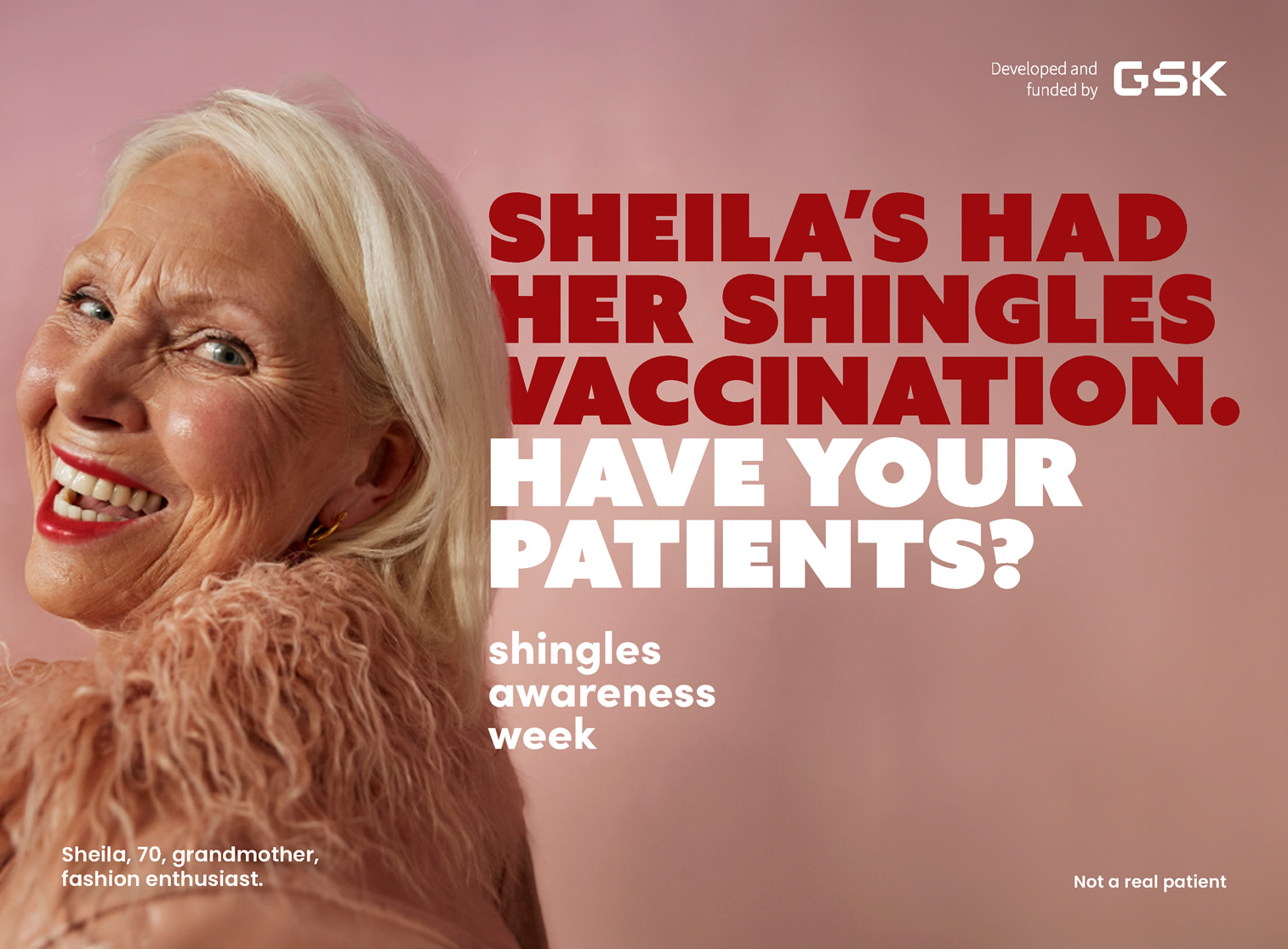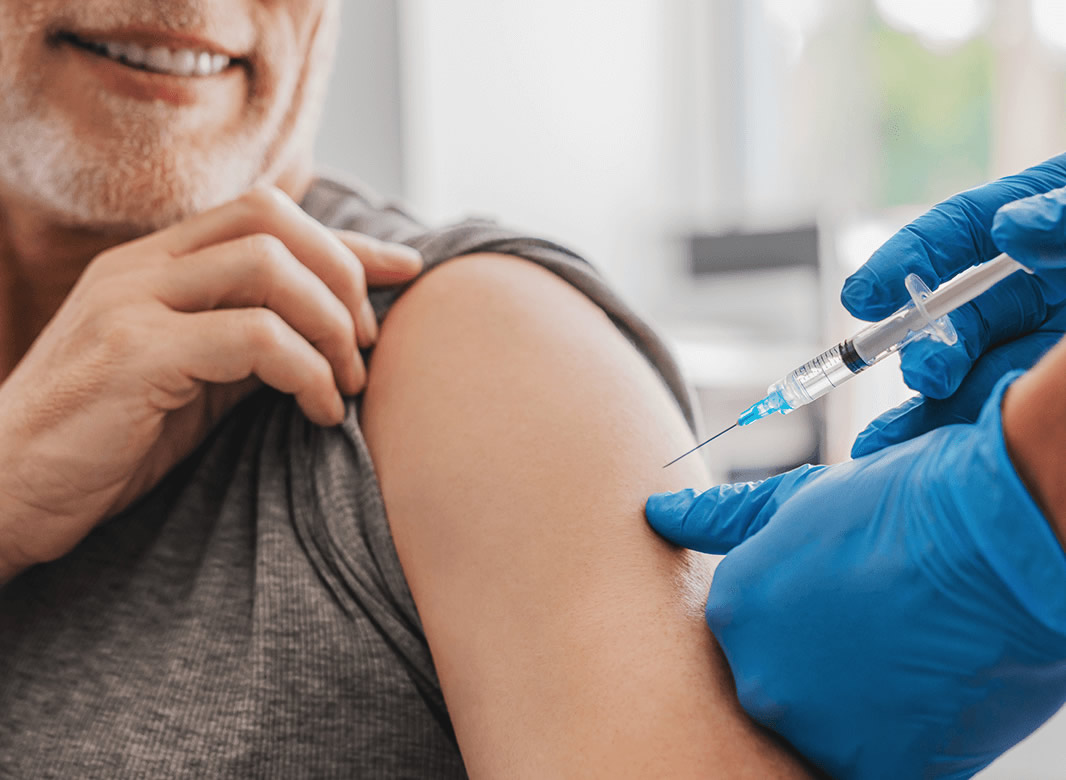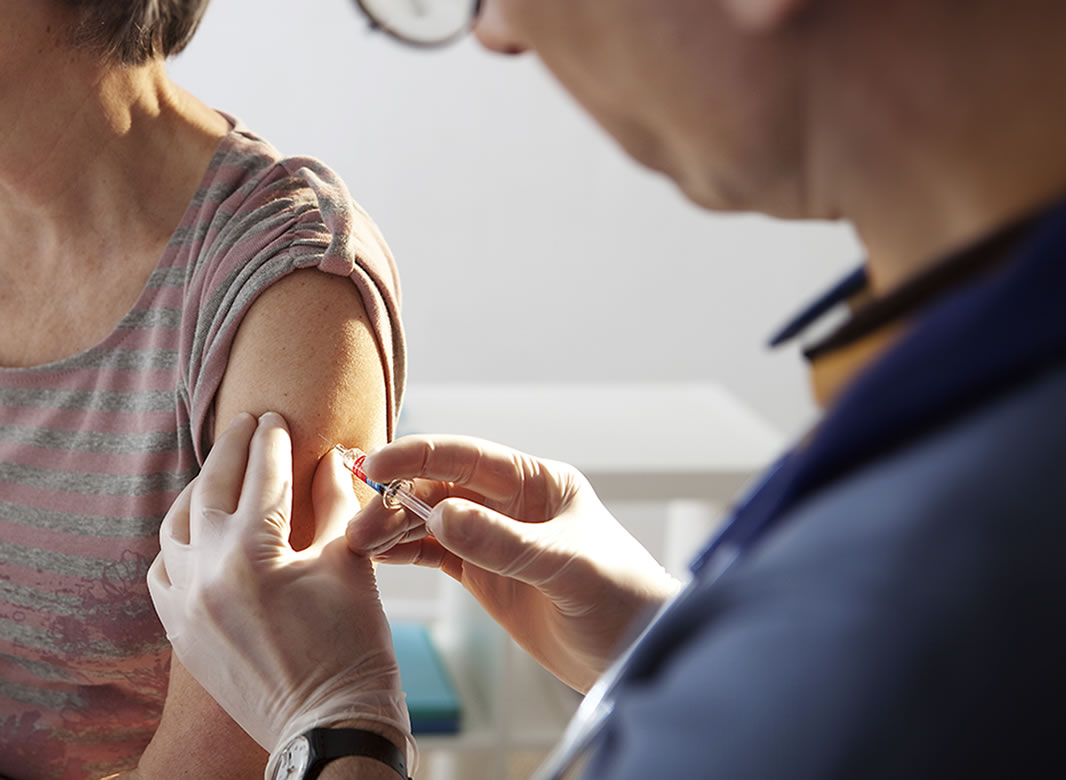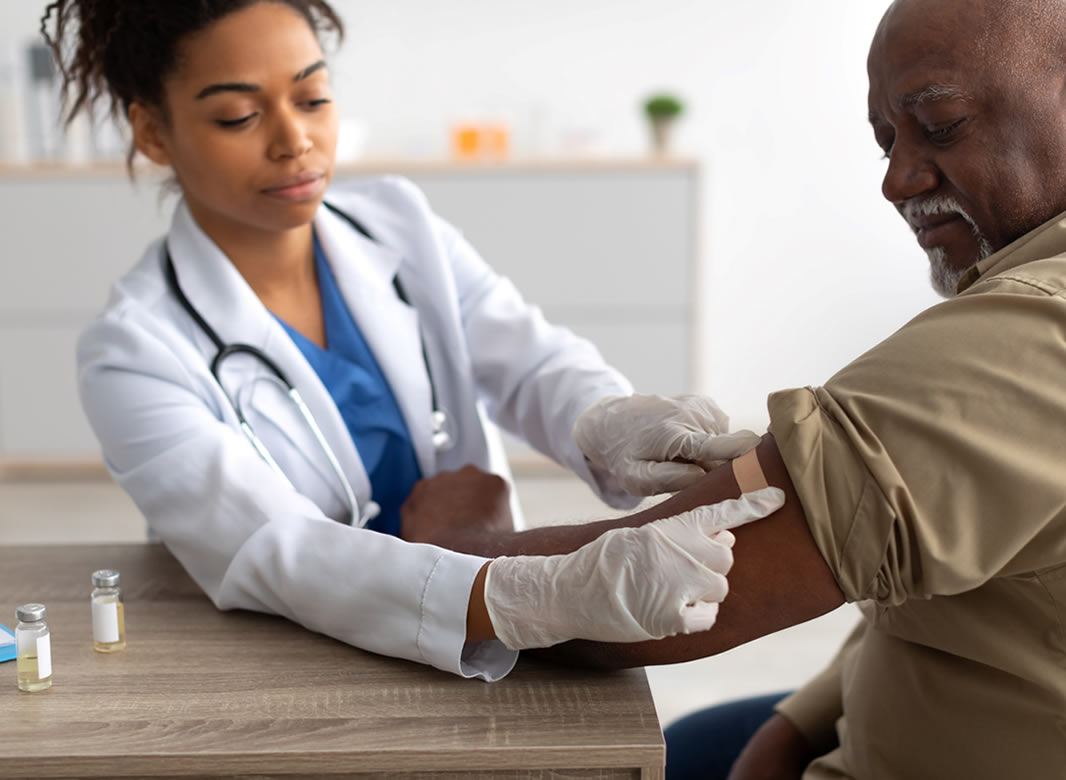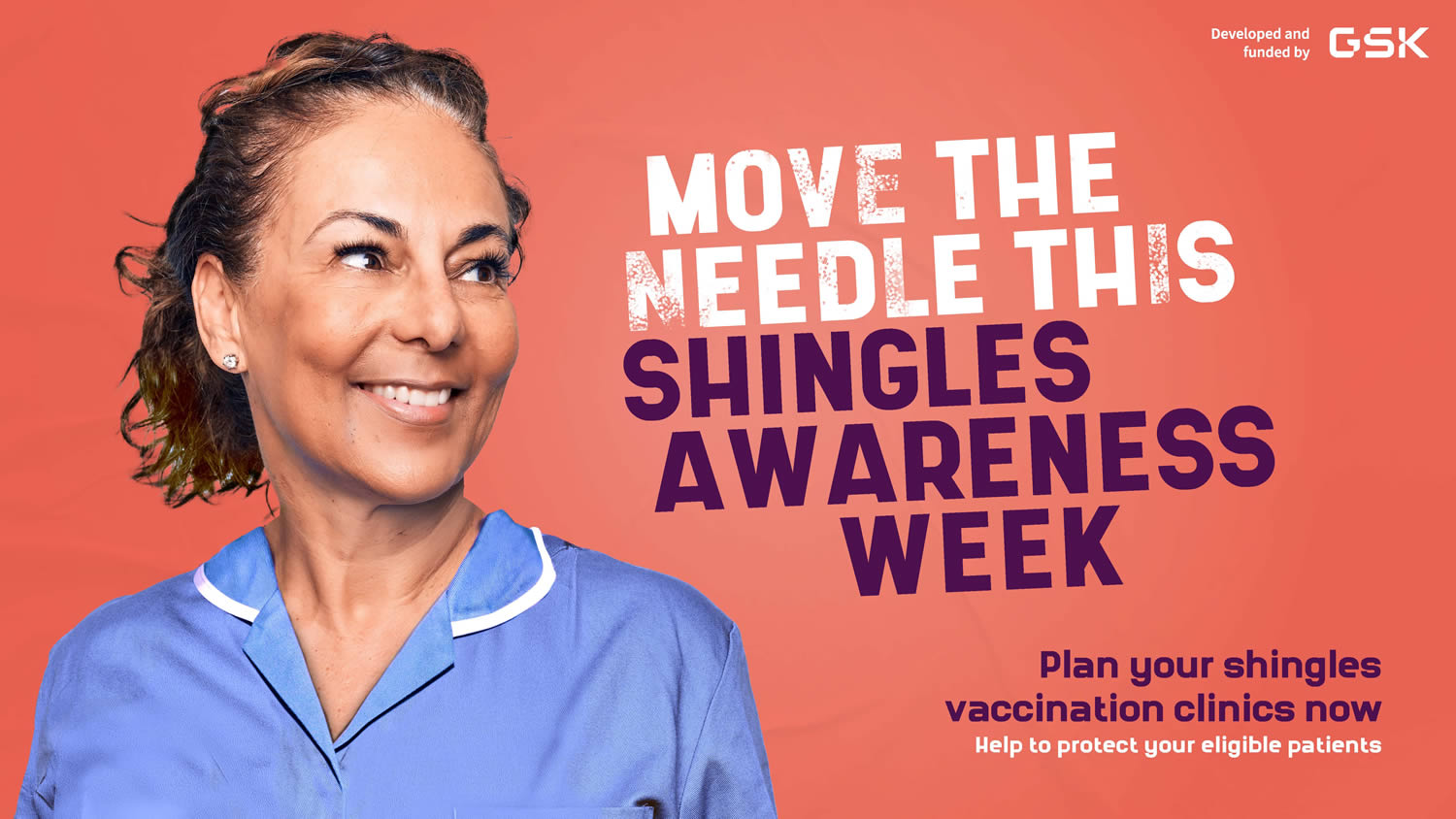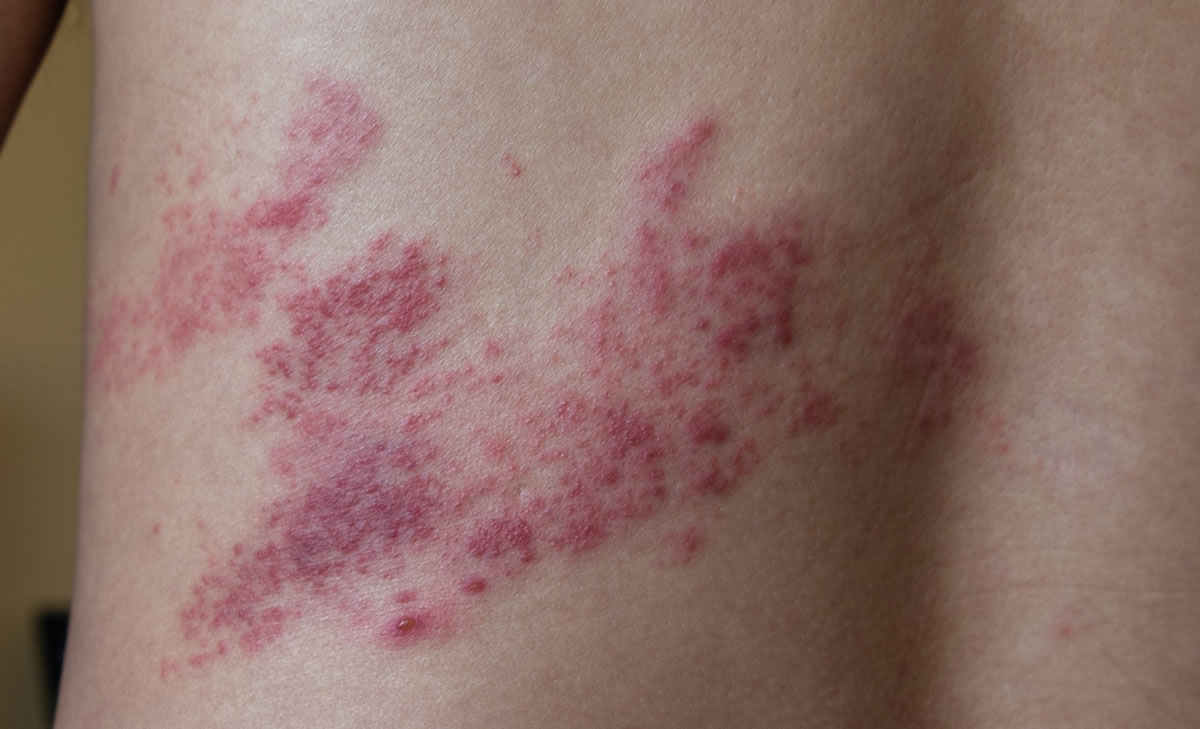
Spotlight on… Joanna Lowry
Article written August 2023
Read time: 4 minutes
Topic tags: Joanna Lowry, Immunisation Lead, vaccination
Return to Educational ResourcesMeet the Immunisation Leads helping to shape illuminate in our Spotlight on series. In this series, we will be getting to know some of the leading voices in the immunisation field, exploring how they got to where they are today, and seeking any best practice guidance and advice they have to help improve immunisation rates in practice today.
Adverse events reporting and prescribing information can be found at the bottom of the page.
Healthcare professionals have been consulted by GSK and received honorarium.
In the first of our Spotlight on series, we meet Joanna Lowry, an Immunisation Specialist Nurse and Educator from Hampshire. We discuss how she came to be so passionate about immunisation, some of the challenges she has faced over the years, and what she believes it takes to successfully implement immunisation programmes in a busy practice.
Joanna, could you tell us a bit about your current role and how you came to be involved in immunisation?
It was an interest in tropical infections which ignited my passion for immunisation. Knowing there is an effective way of preventing a disease is hugely reassuring, and that led to travel health and routine vaccines. I have been an Immunisation Nurse Specialist in an independent school and more recently in primary care and general practice.
I also administer vaccines as a sexual health nurse and enjoy the contrast alongside the occupational health and TB Specialist Nurse vaccine experience I’ve gained over the years. So, I’ve ended up covering lots of clinical care where vaccines are given, and they are all different and interesting. This has helped me understand the importance of education for effective and efficient vaccine delivery.
This passion led me to want to support other clinicians and colleagues. I’ve created and delivered an introduction to immunisation training course to a range of healthcare professionals, helping to provide the latest evidence-based practice and protocols. Immunisation training offers the opportunity to engage in interdisciplinary learning, which I thoroughly enjoy.
Can you tell us a bit about the role of the Immunisation Lead in your experience?
Although the title ‘Immunisation Lead’ may not be used in every practice, all practices should have an individual who coordinates vaccinations and improves standards. In my experience, Immunisation Leads will participate in specialist training and learning, implement best standards, and monitor for updates to immunisation programmes. Their role is to disseminate knowledge and national recommendations among the whole practice and the rest of the staff. As an Immunisation Lead, I’ll offer a vaccine preference if there is a choice for a given disease.
The practice manager will be looking at the statistics and the uptake, but the person who does the ordering is often a member of the admin team and many of the vaccines may now be given by a healthcare support worker (HCSW) or healthcare assistant (HCA).
It's important to ensure immunisation care is consistent nationally. Therefore, it’s recommended that anyone who will be giving vaccines participates in a 2-day introductory course and completes competencies with a mentor in practice, in line with the national minimum standards.1
What are some of the key challenges you've faced being an Immunisation Lead?
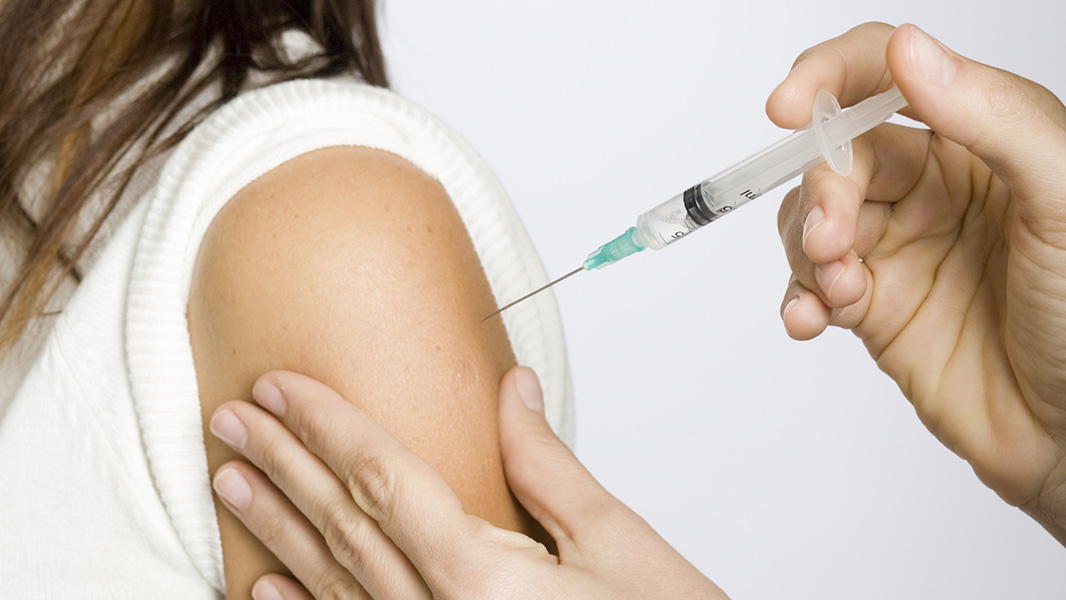
Reaching some communities can be tricky. During COVID-19, I was redeployed four times, one of which was as a clinical lead in a mass vaccination centre. During another redeployment, I was asked to set up a mobile vaccination clinic to help provide access to immunisation for our harder-to-reach communities.
We worked in a little bus, travelling around to public places such as football matches, supermarkets, and rural locations, as well as being welcomed into our local traveller communities and the homeless community. We did our best to build relationships with local groups and be responsive to their questions and concerns, while also offering a convenient location for vaccines.
Other challenges we face include compliance, with patients needing to book and remember their appointments, especially if they need to return for a second dose of a vaccine.
We need to remember that people lead busy lives and even if they are aware they may be eligible for a vaccine, they may not remember to attend. One tip is to give little stickers with the date on that the patient can put in their calendar as a reminder. That physical reminder can be really helpful, especially in your patients who are over 65 years of age and are eligible for a number of different vaccines. They often appreciate that.
What can we do to overcome the resistance around vaccinations?
One part of the national minimum standards update training is to encourage increased vaccine uptake and engagement. However, I think some patients are put off because they don’t want to book an appointment if they are not 100% sure they want the vaccine, or have a niggling doubt from something they read on social media. In their mind, if they come in and are given information but do not want the vaccination, they feel that they are wasting an appointment or have to receive a vaccine despite not wanting to.
However, this is absolutely not the case. As a healthcare professional, I want to ensure the patient feels comfortable and has all the information they need to make an informed, educated choice.
Therefore, one of the things that I always advise clinicians is to provide an opportunity to answer questions in advance. I try and encourage surgeries to have a call-in system or a drop-in box, or some way for patients to ask questions and get the answers and reassurance they need, before booking an appointment to have the recommended immunisation.
Do you have any other advice on how we can improve vaccine uptake?
With regards to shingles, many people don’t necessarily know what it is or have a misunderstanding, such as thinking you can ‘catch’ it. So, when I see an eligible patient, I try to simply explain to them what shingles is and which type of symptoms the vaccination will protect them against.
Many people are unaware of post-herpetic neuralgia and how long the pain can last. Understanding what a vaccine can help protect against, often helps reassure patients during a shared decision-making process.
The other thing I would say is to consider opportunistic vaccinations as a bonus. If someone comes in for an alternative appointment and they also get vaccinated, fantastic, but that’s not just what we are aiming for. The ideal is to offer the vaccine to people when they become eligible and proactively invite them in to ensure they are vaccinated and protected as quickly as possible.

Reviewed by: Joanna Lowry
Joanna Lowry, RN DTN BSc Hons MFTM RCPS (Glas), is a specialist nurse who originally worked in emergency medicine but sparked an interest in travel health. She has worked in New Zealand, followed by a broad range of clinical areas such as in an independent boarding school, and several GP practices. Jo is passionate about training healthcare professionals and helping them further their knowledge.

The many faces of immunisation leadership
Explore how practices approach immunisation leadership through its different roles and responsibilities
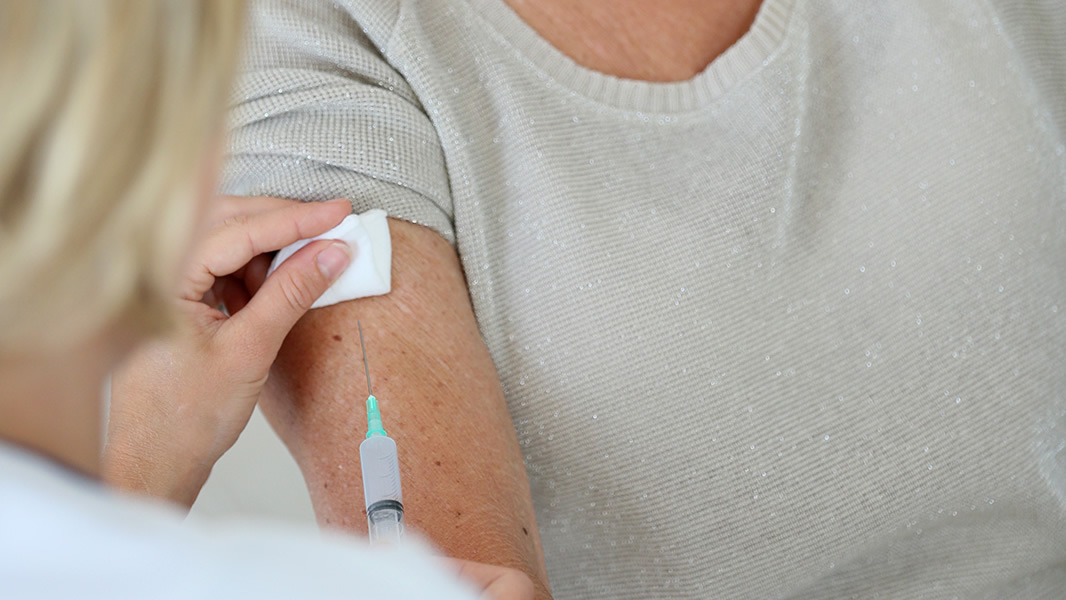
Shingles National Immunisation Programme
Discover the latest guidance on the Shingles National Immunisation Programme
References
- GOV.UK. National minimum standards and core curriculum for immunisation training. Available at: https://www.gov.uk/government/publications/national-minimum-standards-and-core-curriculum-for-immunisation-training-for-registered-healthcare-practitioners. Accessed March 2025.
- GOV.UK. Shingles vaccination guidance. Available at: https://www.gov.uk/government/publications/shingles-vaccination-guidance-for-healthcare-professionals. Accessed March 2025.
March 2025 | PM-GB-AVU-WCNT-230006 (V4.0)
For the SHINGRIX® (herpes zoster vaccine, recombinant, adjuvanted) prescribing information, click here.
